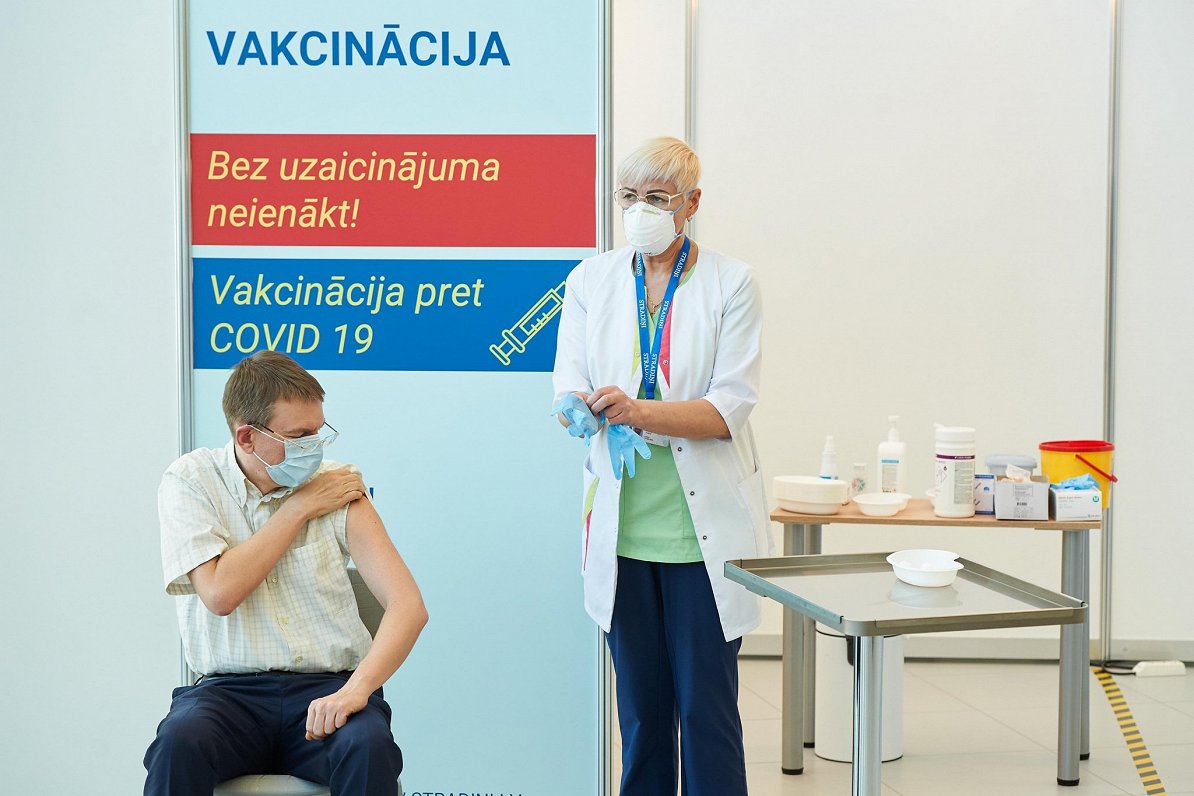Last week, the government identified eight priority groups who would receive Covid-19 vaccine first.
The 8 priority groups, as decided February 9, are:
- Doctors and special patient groups as identified by medics.
- Employees and clients of social care centers; key government officials.
- Seniors over 70 years; those living with chronically ill children and carers for the sick.
- Seniors aged 60-70.
- Kindergarten and general school staff, emergency services and armed force members, National Guard, critical utility supply companies.
- Clients of special institutions, including homeless shelters, persons in prisons.
- Sectoral priority workers, clergy and church workers.
- Employees who come into contact with many people who cannot distance themselves at work.
De Facto reported that the fifth group, planned to vaccinate from April to June, has been supplemented with nearly 14,000 people. These include, for example, "essential employees of the Saeima", the number of whom is not specified, unlike the other additional groups of persons to be vaccinated.
The others are participants of the coming Tokyo Olympics: athletes and service personnel (275 people), as well as an expanded number of persons important for the continued operation of the energy supply and ICT infrastructure, staff and others involved in municipal elections.
Work on priority groups of people to be vaccinated started last year. The recommendations of the European Centre for Disease Control, World Health Organization, as well as the recommendations of the Immunization Council, were taken into account. However, these are mainly medical recommendations that rank people by their age, as well as different diseases. There is also a division between "essential" and "important" employees, the interpretation of which remained in the hands of ministries.
The "essential" employees are placed in the fifth priority group, whereas "important" are in the seventh.
The rest of society, which don't fall into any of the previous categories, are considered the last, ninth group.
The fifth group last week included around 50,000 kindergarten and primary school staff, around 17,000 operational staff, 11,000 people in the army and the National Guard, and around 600 workers in 'critical energy supply companies'.
This week nearly 14 thousand people were included in the fifth group (nearly adjacent to the teachers). This group now includes “essential employees of the Saeima”.
“I won't blame anyone. I understand the situation of sectoral ministries. At the same time, we have received far more requests than mentioned. There have been requests from the Ministry of Culture, from the Ministry of Transport and from the Ministry of Education, including members of the Olympic Unit, from the Bank of Latvia, from the Ministry of Justice and others. Yes, there was a lot of demand,” said Daniels Pavluts, Minister of Health.
Only after several letters have the Ministry of Welfare managed to ensure that social services workers in direct contact with customers are included in the fifth and not the seventh priority group. The same group also includes operational services and nearly the entire army, regardless of each task. However, as vaccines are delayed, priorities will also need to be developed within a single group.
In a separate priority, or in the seventh group, workers from other sectors who are "important" but not "essential" have been included. Comparatively, this group is smaller (94 868 people in the fifth and 28 690 in the seventh, respectively). And all the ministries are represented here.
“In fact, [these workers are] those who are involved in working with clients where it is not possible to work remotely, who are also involved in carrying out various checks,” said Kaspars Cirsis, Deputy State Secretary of the Ministry of Agriculture.
Almost at the bottom of the list are exporting companies that are important to the economy, and then other companies.
“I think that the time lag will not be as great as the availability of these vaccines is probably the most critical of this, and I think there will be no big difference between one and the other,” said Edmunds Valantis, State Secretary of the Ministry of Economics.
Last week, the government instructed the Minister for Health to approve the arrangements for organizing the vaccination process by 19 February.






























